Homeowners may want to install a solar energy system, effectively reducing their electricity bill. In that case, an off-grid solar system, which requires plenty of sunlight, could be considered. This also doesn’t supply electricity through a utility grid at night or during rainy weather, making them less ideal. Therefore, hybrid solar systems offset that drawback due to grid connectivity and battery integration.
Hybrid solar systems definition
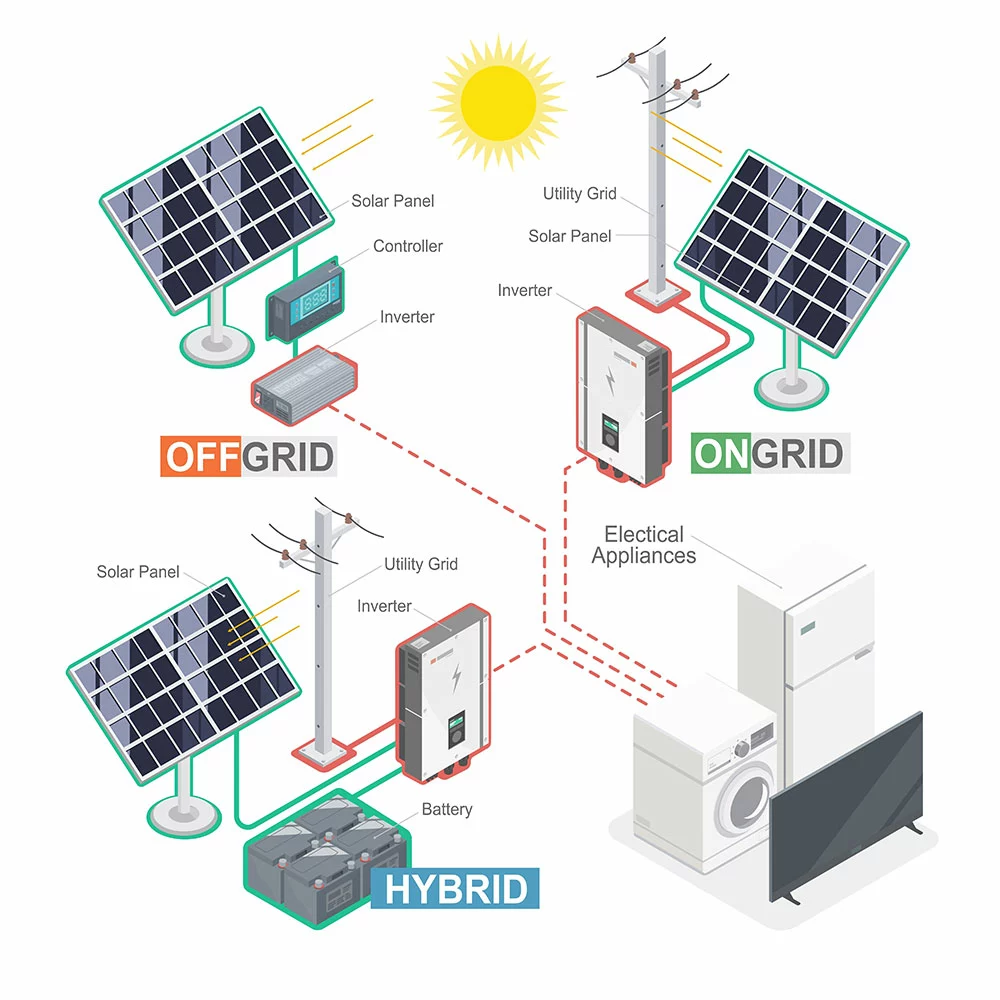
Hybrid solar systems, on-grid, and off-grid solar systems.
A hybrid solar system is a power generator that functions similarly to the grid-tied solar system. It generally utilizes components commonly seen in on-grid and off-grid solar systems. More specifically, they feature a hybrid inverter that provides power back and forth to any connected battery banks.
Operationality of a hybrid solar system
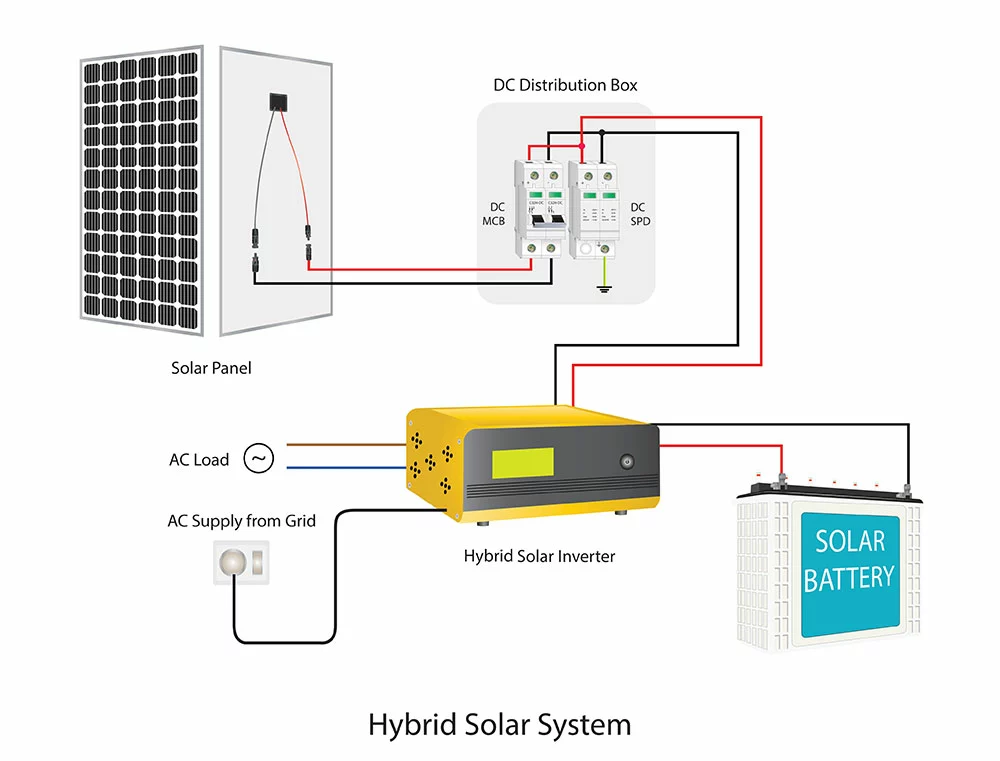
A hybrid solar system.
Hybrid solar systems feature various components, including a battery, solar inverter, and battery inverter.
First, solar panels harvest sunlight energy, converting it into DC power. Afterward, the solar inverters transform it into AC power, which gets delivered to the switchboard. This usable energy can then power your home. Any excess energy will be delivered to your battery inverter, transforming the electricity for storage. Then, the batteries receive that power, sending it to your home whenever the solar panels do not generate energy. Lastly, any excess power goes to the grid instead.
Plus, the system can transmit AC power from the electricity grid to the owner’s home when required.
Hybrid system benefits
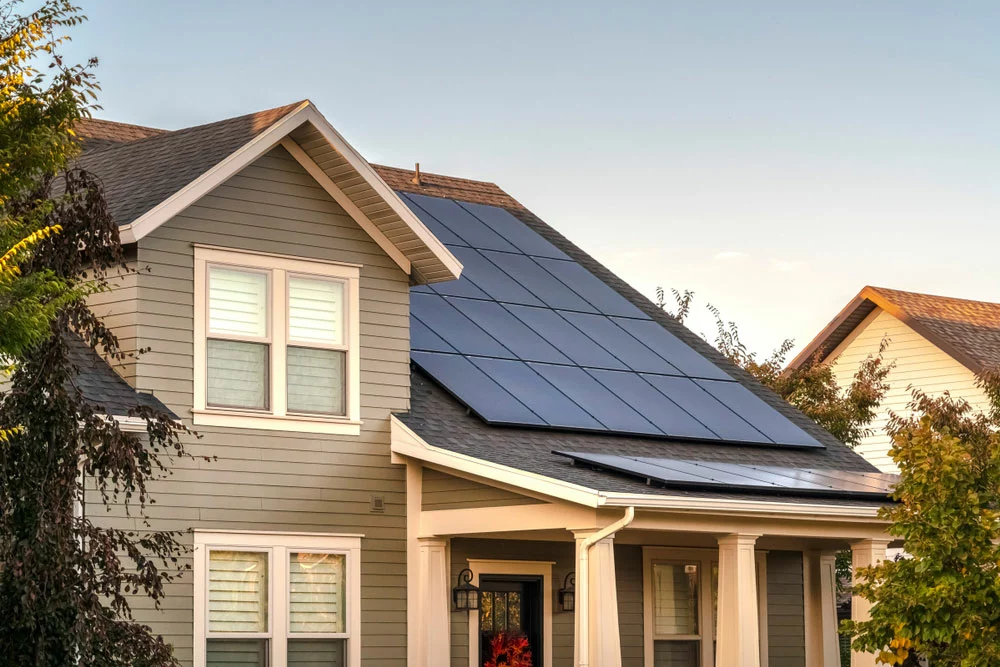
Solar panels on the roof of a home.
Hybrid systems have many advantages that may make you inclined to install one for your home. The list below explains each benefit:
Continuous power supply
Hybrid solar panel systems will always deliver power without any disruptions. Energy storage solar batteries hook up to this system, serving as the backup power source at night or when outages occur.
Load management
Excellent load management also comes with a hybrid solar power system. In that case, it will adjust and supply the appropriate power according to any connected device’s requirement.
Excellent efficiency
These systems operate efficiently in any environment because, unlike conventional generators, they don’t waste resources.
Affordable maintenance
Overall, hybrid solar systems have inexpensive maintenance costs for two reasons: they don’t run on fuel and require minimal servicing.
Efficiently utilize renewable resources.
Lastly, the system will distribute any extra energy from full sun exposure to the batteries. As a result, your home can consume stored renewable energy during cloudy days or bad weather.
Hybrid solar system downsides
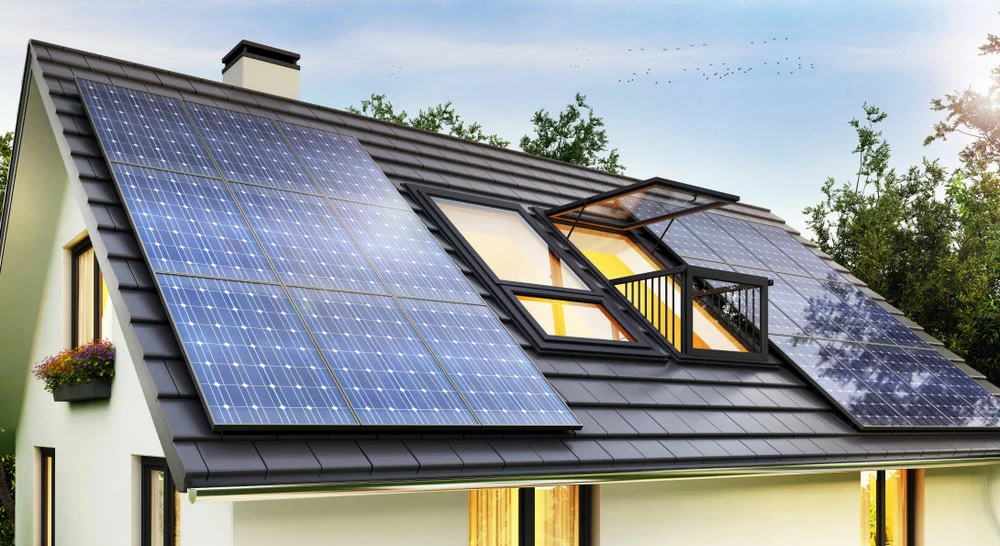
Installing a solar hybrid system.
Of course, these systems also come with some disadvantages. You should be aware of the following:
Battery life degradation
Unfortunately, exposure to weather conditions, such as heat, rain, and others, may cause the batteries’ life to shorten. These batteries typically last between 7 to 15 years.
Limited instruments connected
Due to the hybrid inverter’s capacity, you cannot simultaneously connect and run many devices to the hybrid solar system.
Expensive to install
Hybrid solar energy systems come with a high installation cost versus other solar systems on the market. You will need to consider whether or not to include costly equipment, such as a smart hybrid inverter.
Complex control
Owners will need to understand the system and how it operates. So this involves complex control of the energy sources, their coordination, and interactivity.
Requires space
The essential equipment, like solar batteries and hybrid inverters, will need plenty of space, especially in an urban region.
Is it better to install a solar hybrid system compared to an off-grid?
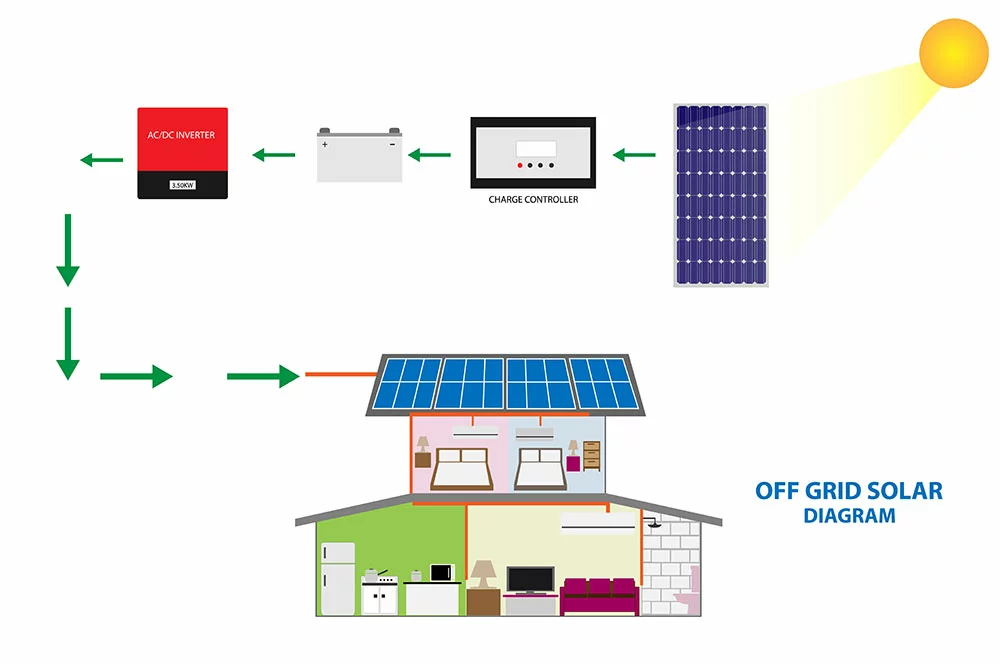
Diagram showing an off-grid solar system.
Yes, because the hybrid energy solar system relies on the power grid or a battery backup to draw in power. That only happens if the system fails to produce electricity. Otherwise, it would help to utilize a backup battery for energy distribution in an off-grid scenario.
You need to monitor power consumption and management with an off-grid solar system. This helps determine how much power remains in the backup battery to prevent it from running empty.
Meanwhile, the hybrid solar system connects to the grid to supply electricity if the battery storage depletes. This is an excellent solution during power outages or if your solar panels don’t receive sufficient sunlight for electrical generation. Generally, that occurs as a result of poor weather conditions. The system will return to normal once it produces and provides energy without depending on other sources.
FAQs
How does the hybrid solar system differ from off-grid systems?
Hybrid solar systems rely on the grid for backup power. Meanwhile, larger off-grid systems operate with a backup generator rather than connecting to the grid.
What is the price of a solar hybrid system?
On average, a hybrid solar system will cost anywhere from $20,000 to $40,000.
Is a hybrid solar system worth it?
Although a hybrid solar system has a heavy price tag, it still offers more reliability than traditional grid-tied systems. Plus, you will see more savings on your electrical bill faster than the other types.
What are the best battery options for a hybrid solar system?
Many batteries exist on the market, but the best ones include Panasonic EverVolt, Sunpower Equinox, Tesla Powerwall, etc.
Summary
A hybrid solar system is an excellent solution for your power generation needs. You won’t need to worry about losing power in certain conditions. Not only that, but it also provides more benefits than other systems.
Do you have any questions regarding hybrid solar systems? Feel free to contact us!
